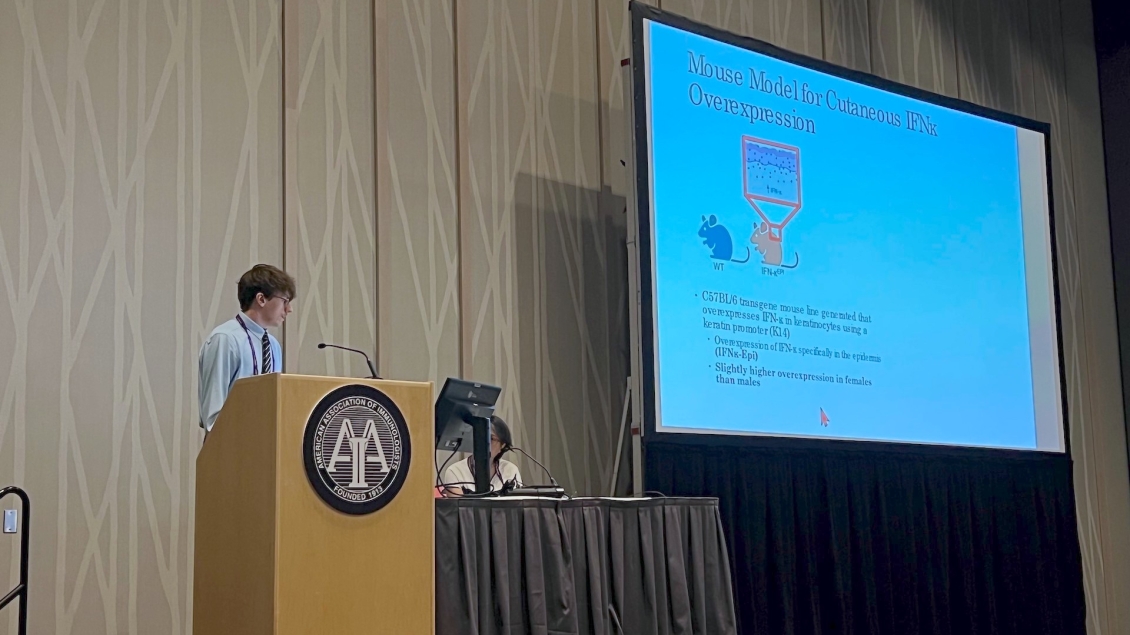
Research Overview
Our long-term goal is to develop targets to prevent and treat cutaneous, and possibly systemic lupus exacerbations.
Lupus patients hide from the sun. Ultraviolet (UV) light exposures are a frequent trigger for skin inflammation in lupus patients, and sufficient exposure can lead to a rise in skin and systemic disease activity. Other triggers of lupus flare, such as infection or alterations in a patient's microbiome, are also poorly understood. Our long-term goal is to understand the mechanisms by which the skin of lupus patients is primed for inflammatory responses in order to develop targets to prevent and treat cutaneous, and possibly systemic lupus exacerbations.

The Kahlenberg lab has identified abnormalities in lupus skin that pre-dispose to inflammation. Early, we identified that epidermal disruption was sufficient to trigger flares of nephritis in lupus prone mice. We then began studying the transcriptional changes in lupus skin and identified a novel type I interferon (IFN), IFN-kappa, as elevated in both lesional and non-lesional skin of lupus patients. We have published that increased IFN-kappa increases type I IFN responses in lupus keratinocytes and also drives enhanced cell death following UVB exposure. Ongoing work in our lab and with collaborators is investigating how IFN-kappa participates in healthy skin biology and also may promote other skin diseases.
Our lab, in collaboration with the lab of Johann Gudjonsson, MD, PhD has started a large, longitudinal cohort of lupus and psoriasis patients in which we are studying the immune responses in skin and blood over time in patients. This one-of-a-kind project, sponsored by the Taubman Institute Innovative Program, is leading the way to development of personalized medicine for patients with systemic lupus erythematosus and psoriasis.
Current Projects
- Effects of type I interferons on ultraviolet light-induced skin inflammation
- Regulation of interferon kappa, a type I interferon produced by keratinocytes
- Regulation of interferon responses in keratinocytes
- Investigation of the effects of Staphylococcus aureus on cutaneous lupus
- Murine models of lupus
- Long term immunophenotyping of patients with systemic lupus and psoriasis